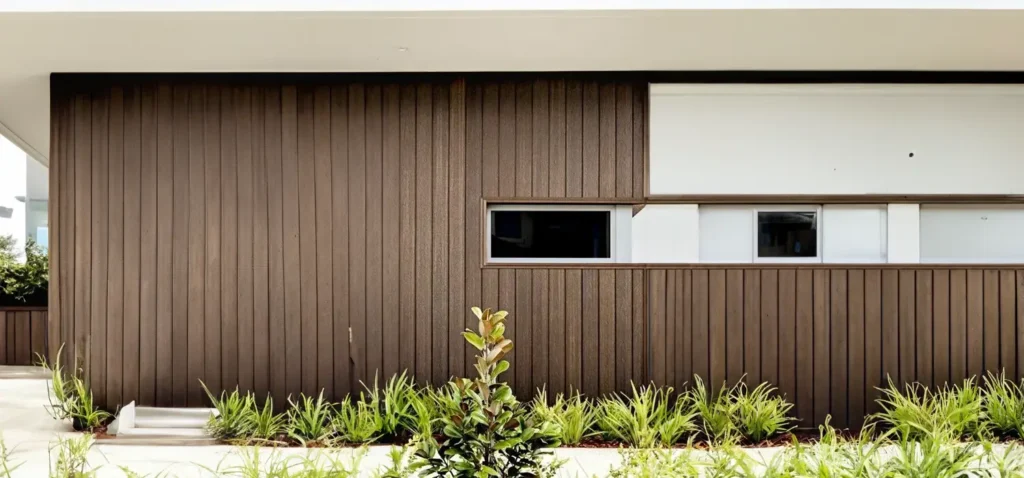WPC (Wood Plastic Composite) siding offers a versatile and attractive solution for exterior cladding, combining the aesthetic appeal of natural wood with the durability and low maintenance of composite materials. Thanks to its unique composition and installation methods, WPC wall siding can be adapted to a wide range of exterior surfaces, making it a popular choice for various applications. However, there are a few considerations to keep in mind to ensure proper installation and optimal performance.

Compatibility with Different Surfaces
Concrete and Brick Walls: WPC siding can be installed on concrete and brick surfaces, which are common in residential and commercial buildings. Preparing the surface correctly, including cleaning and ensuring it is level, is crucial for a successful installation. Specialized fixings may be required to secure the siding to these harder surfaces.
Wooden Frames: Installing WPC siding over wooden frames is straightforward, as the material can be easily attached using screws or nails. It’s essential to ensure that the wooden structure is stable and in good condition to support the siding.
Metal Frames: Similar to wooden frames, WPC siding can be mounted on metal framing structures. Special considerations, such as choosing the right type of screws and preventing corrosion where metal meets a moist or wet composite material, are important.
Existing Siding: WPC wall siding can also be installed over existing siding materials, such as vinyl or aluminum, provided the existing surface is stable, flat, and free of damage. An additional layer of sheathing might be required to create a smooth, supportive base for the WPC panels.
Important Considerations
- Surface Preparation: Regardless of the type of exterior surface, proper preparation is key. The surface should be clean, dry, and as level as possible to ensure that the siding panels fit correctly and securely.
- Thermal Expansion: WPC materials can expand or contract with temperature changes. It’s important to allow for adequate spacing between panels and at termination points to accommodate thermal movement.
- Moisture Management: While WPC siding is waterproof, managing moisture in the underlying surface is crucial to prevent trapped moisture, which could lead to mold or mildew growth. A breathable waterproof membrane may be recommended in some installations.
- Professional Installation: Although WPC wall panel is more forgiving than some traditional materials, professional installation is recommended to ensure the best outcome. Experienced installers can address the nuances of working with different exterior surfaces and ensure that the siding is installed correctly and durably.
In summary, WPC wall cladding can be a flexible and durable option for a variety of exterior surfaces. With proper preparation, attention to detail, and professional installation, WPC siding can enhance the aesthetic and functional value of both residential and commercial properties.
